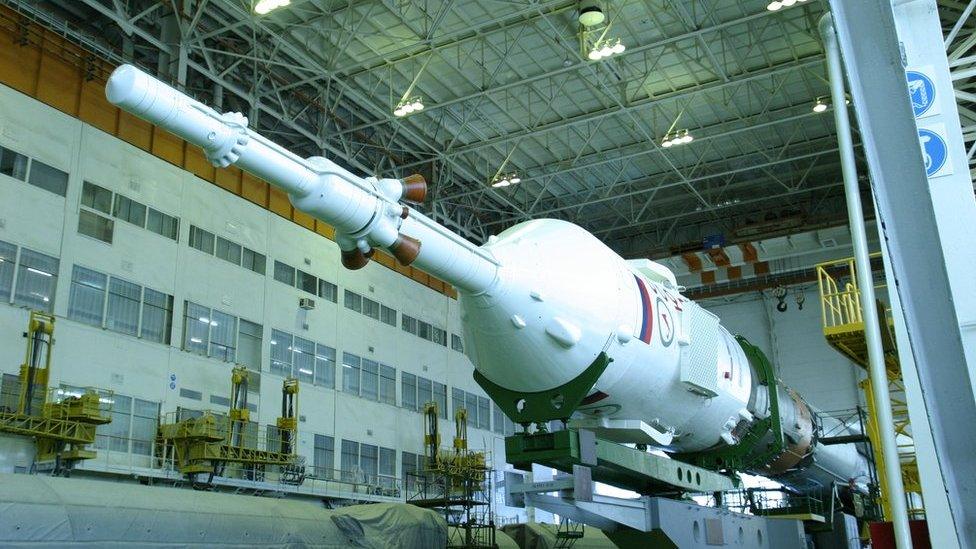Russia's troubled Vostochny space port readies for lift-off
- Published
Inside Russia's new space port
Vostochny was once a top secret site with a Soviet nuclear missile division hidden deep in Russia's Taiga forest wilderness. Its distant, Far Eastern location made it the perfect setting for Russia's new Vostochny space port.
It was Vladimir Putin's personal idea to build a new space port in Russia - to avoid any potential political risks of using the old Soviet launch centre at Baikonur in Kazakhstan.
But the road to firing up the first rocket at Vostochny has not been smooth, and last month the initial launch had to be postponed.
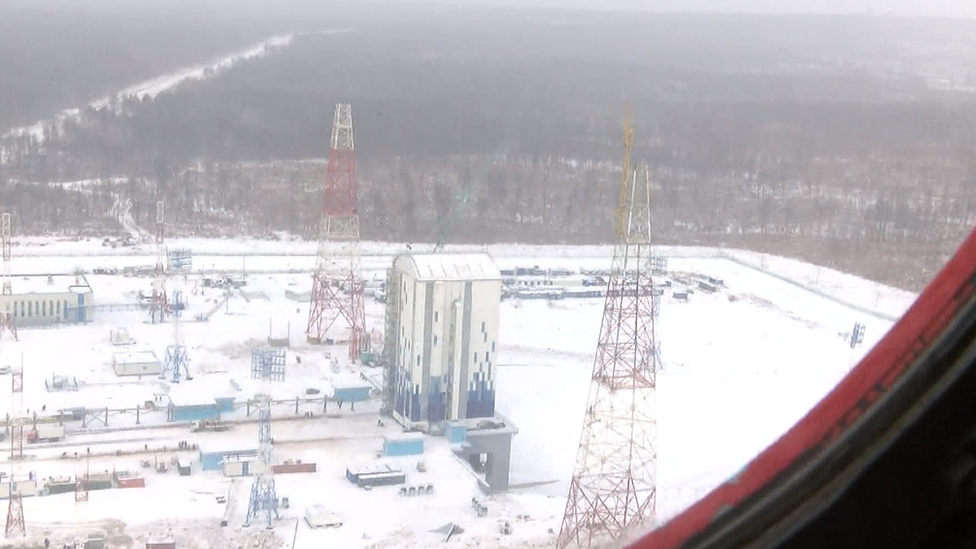
The Vostochny site, pictured, is far smaller than the old Soviet space centre at Baikonur
To come here from Moscow you have to fly for seven hours to the nearest big city of Blagoveshchensk and then another 90 minutes by helicopter over a vast woodland landscape.
Vostochny is in many ways ideal: there is no danger here of a discarded rocket falling on populated or foreign territory.
The cosmodrome is far from Russia's political and financial centres but also some distance from its space plants and factories. Every rocket has to be delivered by rail from Samara, some 6,000km (3,730 miles) away.
Unlike Baikonur, Russia's Far Eastern space site is compact. Even when another launch pad is built for Russia's Angara heavy-lift rocket it will still be relatively small, partly because modern technology is so much more efficient than in the Soviet era.
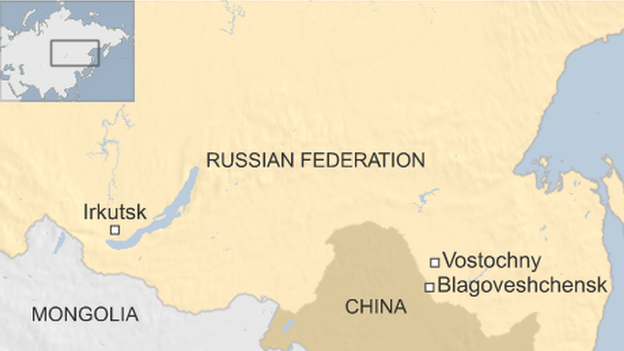
The launch itself will be controlled by computer and by one person, very different from the big launch crew at Baikonur.
This advance in infrastructure, digital systems and technology is a big step for the Russian space industry, although when it comes to the rocket it will still rely on a modernised version of the old space workhorse, the Soyuz.
The new family of Angara heavy-lifting rockets is yet to come and will need a new launch pad at Vostochny.
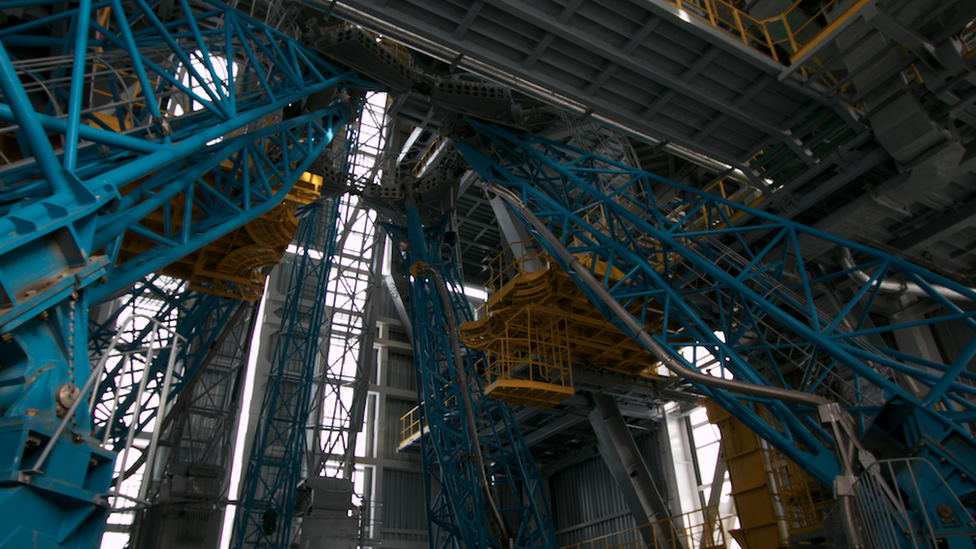
The most visible difference at Vostochny is the mobile service tower on the launch pad
The Angara rocket will replace another Soviet space veteran, the Proton, which is ecologically dangerous due to its toxic fuel.
Budget cuts
The idea of a new cosmodrome seemed like a good idea a decade ago, but it has become a major budget headache for a Russian government in a shrinking economy.
The 10-year space budget (2016-2025) has been almost slashed in half.
Russia's federal space agency asked for 2,850bn roubles in its 2014 draft submission but will now receive only 1,406bn.
But, because of the fall of the rouble, the difference in dollars is more dramatic.
The initial draft request in 2014 amounted to $57.8bn. Roscosmos will now have to settle for $14bn.
Roscosmos pays its bills in roubles, so that may not be a disaster. But it does show how complicated the job of reforming Russia's space infrastructure has become.
The space agency has had to tighten its belt.
Some space programmes have been shortened, some postponed or even scrapped. And now Vostochny will have just one more launch pad rather than two for the Angara rocket.
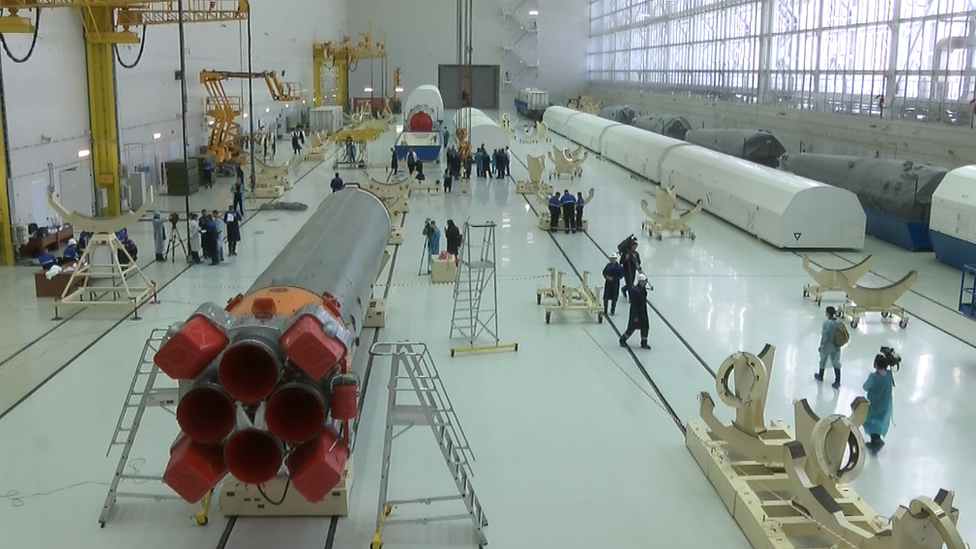
The first launch has been delayed until April but parts of the rocket have arrived at Vostochny for assembly
Construction at the site has also become the focus of financial scandals that have prompted a criminal investigation by Russia's Investigative Committee.
April launch
And financial issues have affected payment of workers' wages, prompting strikes.
Amid a swirl of budget and technical difficulties, the first rocket launch, slated for December, was postponed.
The new head of Roscosmos, Igor Komarov, blamed technical problems.
The launch has been put back to April but preparations are already under way. Parts of the Soyuz rocket have arrived at Vostochny this month.
- Published22 December 2015
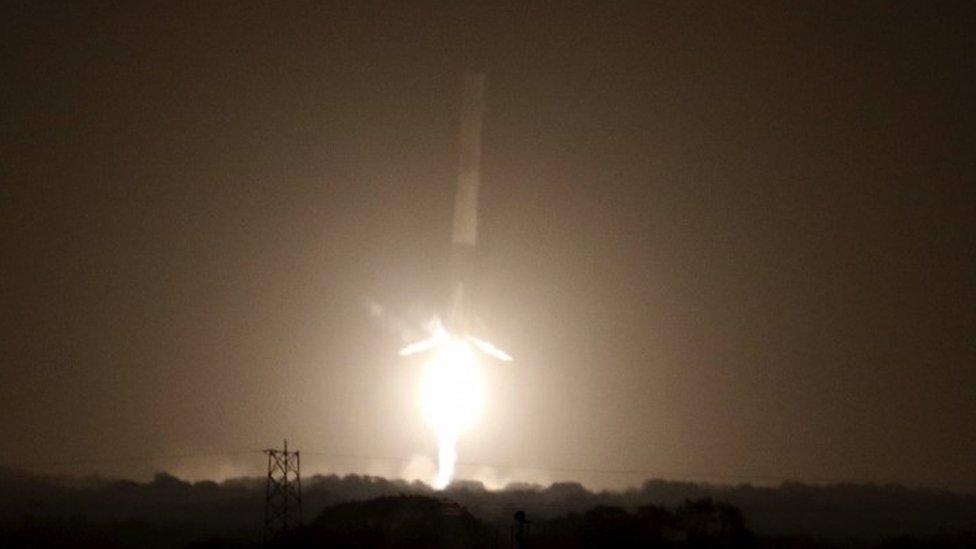
- Published9 November 2013
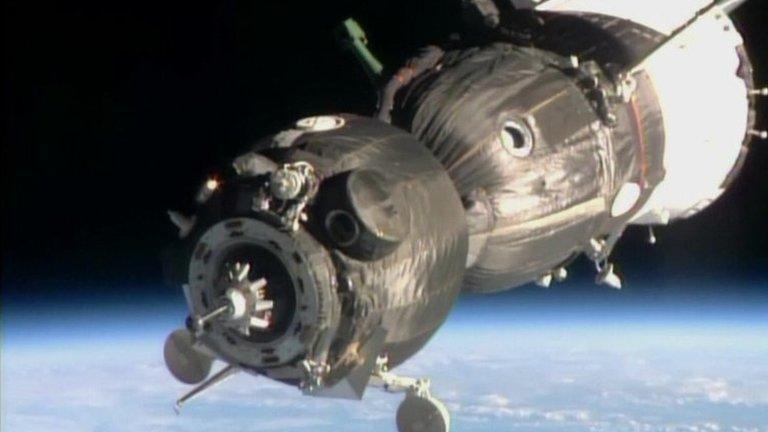
- Published12 December 2015
